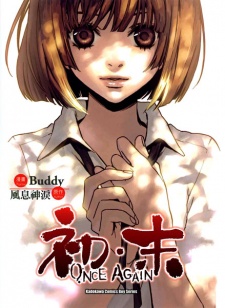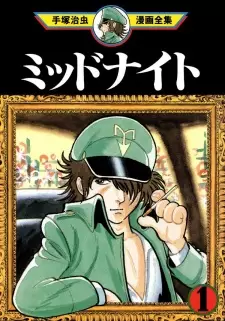Jul 28, 2023
While reading this 初•末 ONCE AGAIN (The beginning, The end, ONCE AGAIN) I wondered why there was so much Japanese cultural influence, then after further research, it turned out that the work scripted by Fengxi Shenlei (风息神泪), was serialized in Tianman which is a Chinese magazine related to Kadokawa. The work participated in the 6th "International Manga Award" held by the Japanese Ministry of Foreign Affairs and can be read in half an hour.
The writer Fengxi Shenlei has also written the script for a moderately successful film (also disclosed in the Japanese market) entitled The Legend of Hei, therefore perhaps not with a very famous
...
pedigree but an author who has his own curriculum. Yigan Lin's (凌一凡) character design is totally forgettable, there is nothing that excels.
I was talking about Japanese influences because the work itself uses Japanese terms (kohai, senpai) and musical cultural references to Japan and I think this was done as part of the competition in order to be relatable to the judges.
The plot sees Yuan Ge receive the news of his wife's death during an important meeting, which he welcomes with an absolute lack of emotion. The character is described to us very well in his total lack of empathy. In fact, the supporting characters have no faces but only "labels" related to their role in the company or to the eyes of Yuan Ge. We pass from the General Manager without a face but only with the writing "GM", to the petulant colleague "Petulant colleague and talkative" is his label and so on with the various "diligent subordinate", "ass kisser", etc. etc.
In this suffocation of labels and names, he sees a high school girl every day, distinguishing her face and from that moment on, a love for this unknown girl is born in him.
The ethical sense of the character who questions his sanity and carries out a confidential psychological test to understand if he has paedophilic inclinations is very well constructed. I found that section of the Manhua very well thought out (typically the age gap in anime is always handled in a very creepy way). Our Yuan Ge, on the other hand, understands that having an attraction for someone half his age is both an ethical problem and also a dangerous emotional alarm and for this, well, he gets checked.
The work is not an inseparable cornerstone of the comic narrative but gives brief indications of what must be the priorities of life and the sense of accomplishment of what has been let go and lost.
This a theme that is certainly dear to the Chinese who let's not forget, live in a communist republic that embraces capitalism, a significant oxymoron. "Once again" is a simple tale of memory and love, that's all.
Reviewer’s Rating: 6
What did you think of this review?
Nice
 1
1
Love it
 0
0
Funny
 0
0
Confusing
 0
0
Well-written
 0
0
Creative
 0
0Show all
 1
1

.png)
























